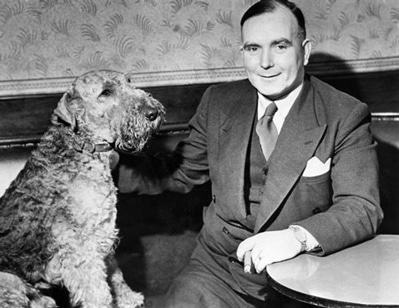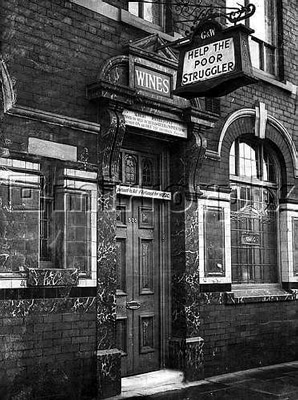Albert Pierrepoint was a British civilian executioner. Albert served as the assistant executioner for his uncle, Thomas Pierrepoint, in seven executions of American soldiers in Britain during World War II. The Pierrepoints were a Yorkshire family who provided three of Britain’s Chief Executioners (sometimes called “scaffolders”) in the first half of the 20th century. Henry Pierrepoint (March 1878 – December 14, 1922) took up the craft first, hanging 105 men from 1901 to 1910. According to reputable sources, Henry could execute a man in the time it took the prison clock to strike eight – leading him from his cell to the adjacent death chamber on the first stroke, and having him suspended, dead on the rope, by the eighth and final stroke. Henry persuaded his older brother Thomas W. to take up the calling.
Born in 1870, Thomas Pierrepoint served as a hangman from 1909 to 1946; he is credited with having carried out 294 hangings. Thomas W. Pierrepoint served as the chief executioner of 17 American soldiers – 16 in Great Britain and one in France. Thomas W. Pierrepoint died on February 10, 1954 in Bradford, England. Later, Albert Pierrepoint recalled that his uncle Thomas on one occasion counseled him on how to conduct an execution stating, “If you can’t do it without whisky, don’t do it at all.”
Albert Pierrepoint, born March 30, 1905 at Clayton, a district of Bradford in the West Riding of Yorkshire, Henry’s son and Thomas’s nephew, outdid his father and uncle combined, and executed 434 people (including 16 women) between 1932 and 1956. Young Albert was nine when he first conceived the ambition to become an executioner. “Hanging must run in the blood,” he once explained. “It requires a natural flair. The judgment and timing of a first-rate hangman cannot be acquired.” His record was 17 hangings in one day. Albert hanged common criminals, 15 German spies, American soldiers and Nazi war criminals. Pierrepoint hanged Irma Grese, a female concentration camp guard, Josef Kramer, a concentration camp commandant and Lord Haw-Haw, a British traitor who broadcast for Germany in World War II.
In 1954, Pierrepoint himself was “sentenced to death” by the Irish Republican Army for his execution of a terrorist in Dublin in 1944. Normally, Pierrepoint traveled to Ireland incognito to and from executions.
Albert Pierrepoint resigned over a disagreement about fees in 1956, when he was not paid the full fee of 15£ for an execution. He then was appointed a British Boxing Board of Control inspector. In 1974 he published his autobiography, Executioner: Pierrepoint.
Albert Pierrepoint and his wife Annie retired to the seaside town of Southport. In his memoirs, on the final page, Albert Pierrepoint concluded, “The trouble with the death sentence has always been that nobody wanted it for everybody, but everybody differed about who should get off.” Pierrepoint was also the proprietor for two pubs, “Help the Poor Struggler” and the “Rose and Crown.” Albert Pierrepoint died on July 10, 1992 in a nursing home in Southport.

